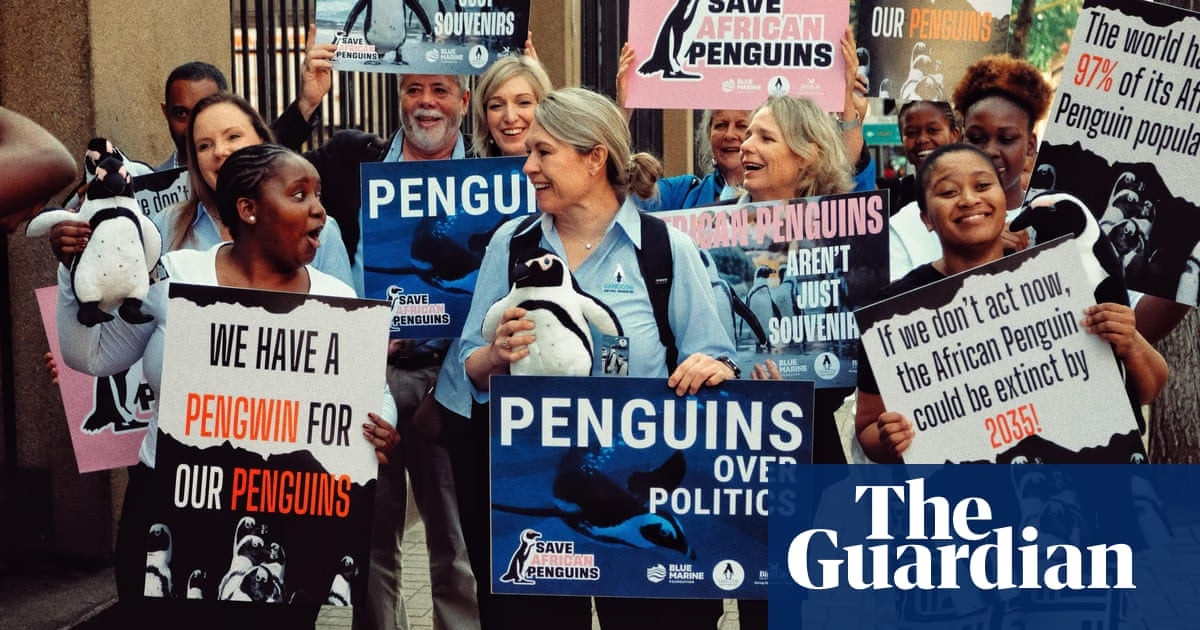Measures to prevent the critically endangered status of the African penguin from worsening moved forward on Tuesday as South African conservation organizations and fishing industry groups reached a legal agreement concerning no-fishing zones surrounding six crucial breeding sites for the penguins. Fishing for sardines and anchovies will be banned within a 20km radius around significant colonies such as the one situated on Robben Island, near Cape Town, where Nelson Mandela was detained, and Bird Island, located opposite Gqeberha, also known as Port Elizabeth. The same applies to four other colonies, albeit with more restrictive measures, detailed in a court order that formalizes the arrangement. A prolonged dispute over the influence of commercial fishing on the sharp decrease of the African penguin populace and the extent to which such restrictions could reverse this decline has been resolved, at least partially, with this agreement. African penguins are on track to become extinct by 2035 if the current rate of population decrease continues unabated, with only approximately 10,000 breeding pairs remaining, drastically down from one million a century ago. Nicky Stander of the Southern African Foundation for the Conservation of Coastal Birds (SANCCOB) expressed that while today’s decision is a significant advancement in the conservation of the African Penguin, the battle is far from over, given the multifaceted and persistent threats the species faces. Two fishing industry groups, the South African Pelagic Fishing Industry Association and the Eastern and Southern Cape Pelagic Association, regarded the deal as a balanced compromise, valid for a duration of 10 years and subject to reevaluation after six. They dismissed the claim that fishing in the vicinity of breeding sites is the principal cause of the penguin’s population decline, expressing satisfaction that the settlement allows for a scientific assessment of the actual factors contributing to the species’ dwindling numbers. South Africa’s Minister of Environment, Dion George, praised the collaborative efforts between industries and conservationists in aiding the protection of penguins and conservation of biodiversity, while facilitating the sustained viability of the fishing industry. NGOs like BirdLife South Africa and SANCCOB previously took the Ministry of Environment’s predecessor to court, charging her with a lack of implementation of “biologically meaningful” fishing restrictions around these colonies. Following his appointment in July, Minister George sought this extralegal resolution. Bob Furness, a University of Glasgow emeritus professor, who served on an independent panel advocating for fishing closures, stated that while this move is positive, further conservation measures, particularly concerning sardine fishing controls, are necessary to address the ongoing pressures faced by the penguins. Environmental and anthropogenic factors like climate change, land-based predators, and noise pollution from ship-to-ship refueling near Gqeberha also play a role in the penguins’ population dynamics, highlighting the complexity of their conservation. While the South African environment ministry did not respond to queries regarding potential additional control measures for sardine fishing, the focus now rests on scrutinizing the industrial fisheries for sardine and anchovy.
Source: https://www.theguardian.com/environment/2025/mar/18/hope-for-endangered-penguins-as-no-fishing-zones-agreed-off-south-africa







